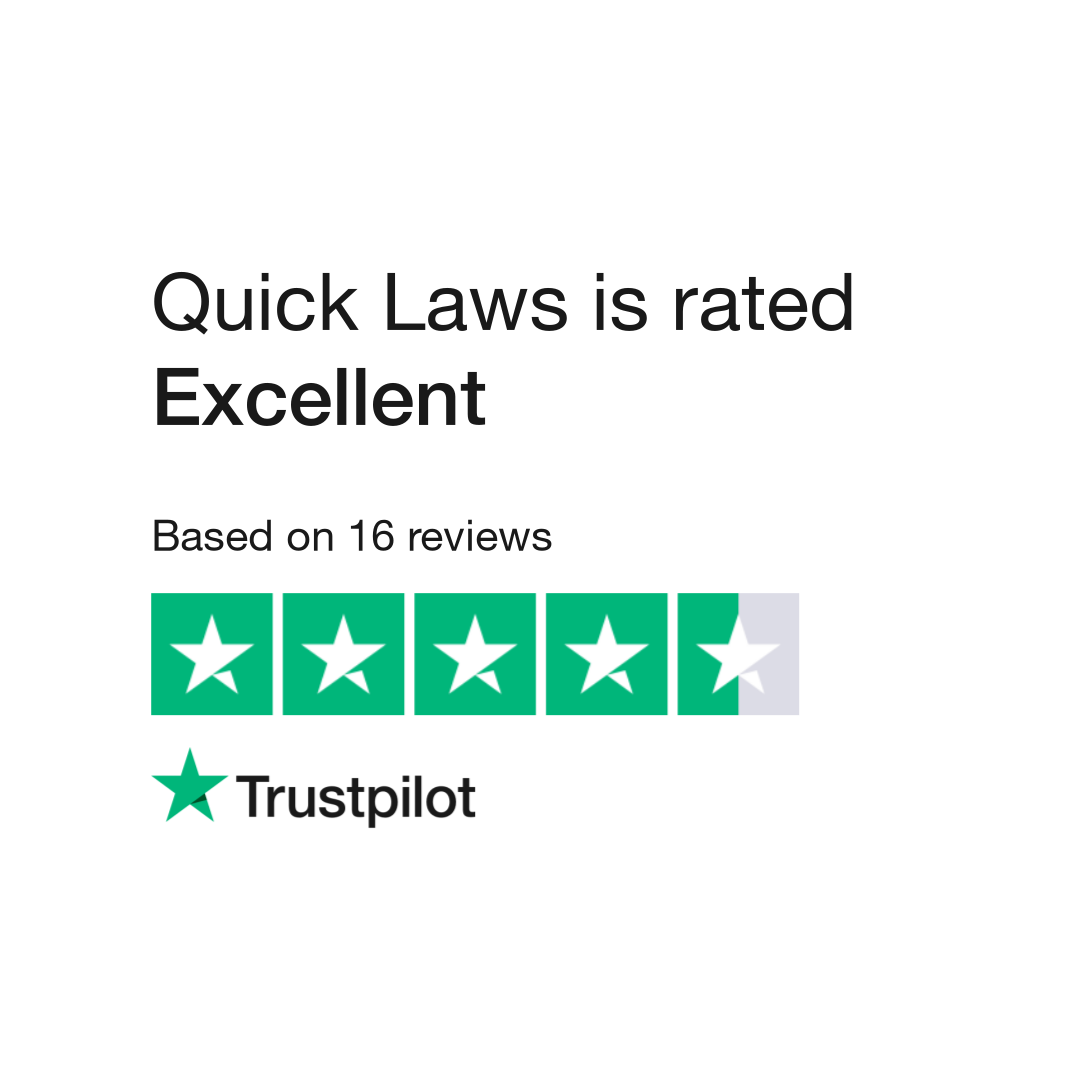Power of Attorney kit (SA)
Power of Attorney kit (SA)
Appoint someone that you trust to make personal, financial or medical decisions on your behalf. Use this kit to complete all the power of attorney forms you need yourself. Includes Advance Care Directive form.
See full description below.
What's included?
✓ General power of attorney form
✓ Enduring power of attorney form
✓ Advance care directive form
✓ Handy wallet card
✓ Step by Step instructions
✓ Simple explanation of the law
✓ Easy to complete
✓ Type or handwrite
✓ Prescribed and up-to-date forms
About This Kit
Give someone that you trust the authority to make your financial, medical or personal decisions and act on your behalf. Use this kit to make all the power of attorney documents that you need, helping you to save time, money and stress.
Use the Quick Laws Power of Attorney kit to:
Name someone to make your medical and personal decisions if you can't
Set out your wishes for future health care, and
Appoint an Attorney to act on your behalf and take care of your legal and financial matters.
What's In This Kit?
This kit includes an information booklet, written by an Australian Lawyer in plain language and the following forms:
General Power of Attorney: Easy to edit Word template (instructions in fields)
For legal/financial decisions whilst you still have capacity. For example, you may want to give someone a General Power of Attorney to purchase a property whilst you are overseas.
Enduring Power of Attorney: Easy to edit Word template (instructions in fields)
Gives another person the power to manage your legal and financial decisions on your behalf and continues to operate should you lose capacity.
Advance Care Directive - Fillable PDF - easy to complete fields
An ACD is used to appoint an Attorney (called a Substitute Decision Maker) to make health, medical or personal decisions in South Australia. Includes a handy wallet card.
What Issues Are Covered?
The information guide covers the following issues:
Different types of Powers of Attorney
Explanation of different types of matters
Who can be an Attorney
What an Attorney can and cannot do
How to complete a Power of Attorney
How to sign a Power of Attorney to ensure its valid
DIY Power of Attorney - How Does It Work?
1. CLICK BUTTON: Press the download button
2. PAYMENT: Enter your personal and credit card details on a secure payment page.
3. RECEIVE YOUR KIT: Download your kit straight away!
Testimonials
"Extremely helpful" - Vicki
"Excellent explanation. Very helpful." - Luciano P.
"Great help" - Kathy F.
"Was very helpful" - Mike B.
"Very helpful" - Rebecca S.
"Very informative" - Bill M
Common Questions
-
A Power of Attorney is a legal document that appoints another person to manage your affairs and act on your behalf. This may include handling your financial/legal matters, medical/health care matters and/or lifestyle/personal matters. Personal matters include very intimate choices about things like where you live and what you wear and eat. The person you appoint is called an 'Attorney.' This is an expression and it does not mean that the person is a Lawyer or Solicitor.
-
There are 2 different types of Powers of Attorney, a General Power of Attorney and an Enduring Power of Attorney. A General Power of Attorney is used to appoint someone to make your financial/legal decisions but stops if you have impaired decision making ability. An Enduring Power of Attorney is used for financial/legal, personal or medical decisions and continues to operate if you have impaired decision making ability.
-
An Enduring Power of Attorney can give you peace of mind as it gives you control over who you want to look after your important affairs should anything ever happen to you. If you ever suffer a serious accident or illness and don't have an Enduring Power of Attorney in place, a Court can appoint someone to act on your behalf. This is also done at a time when you are most vulnerable.
-
Most legal documents need to be signed and witnessed. This includes a Power of Attorney. Most states in Australia prohibit the electronic signing of a Power of Attorney. It's best to arrange for at least one authorised witness to watch you sign a Power of Attorney.
Whether a witness is authorised depends on where you live. The specific signing instructions are different between each state. Our forms include simple to follow signing instructions, that are tailored to each state.
-
In some circumstances, you can have someone sign on your behalf, though there are special rules that apply, depending on the state where you live. The forms include this provision if needed. However, the witness must be satisfied that the person making the Power of Attorney understands the effect of the document they are signing.
A Power of Attorney is a powerful document. You are giving someone the power to deal with important matters on your behalf, such as transferring property or making life-changing decisions about your medical treatment. You should understand the powerful nature of this document and the effect that it has.
-
In general, yes. You can appoint more than one person if you wish. You can appoint each person to make decisions about separate matters (“severally”) or about all matters for which they will need to agree (“jointly”). However, in some states, you can only appoint one person to make decisions about medical treatment.
Need Help with Your Forms?
Get help from a qualified Australian Lawyer
Learn More



